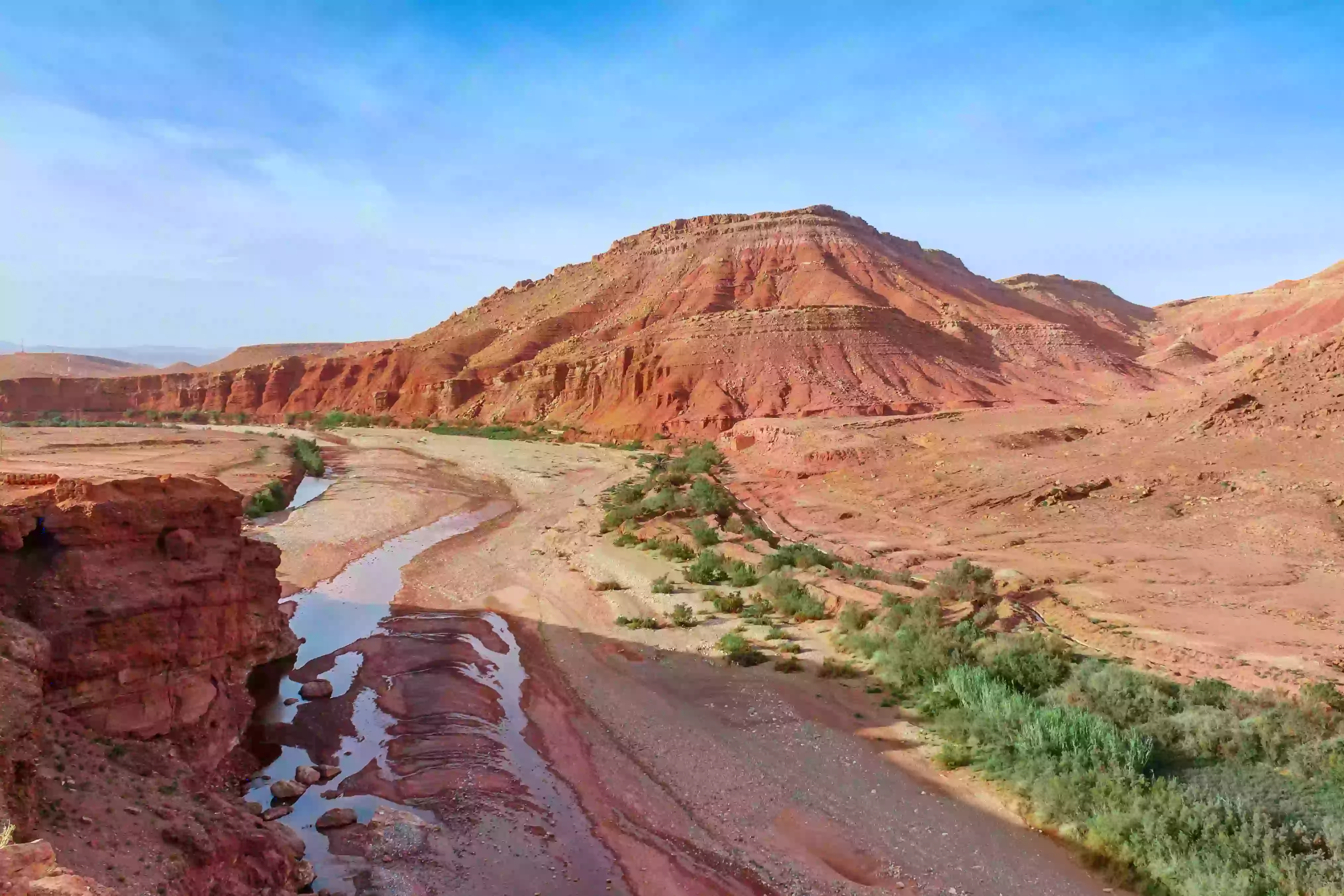Everything You Need To Know About Morocco Visa Requirements
Morgan Wiggins
Mar04,2023 • 4 min read

M
orocco is a popular travel destination, attracting tourists from all over the world. However, before planning a trip to Morocco, it is essential to understand the country's visa requirements. Visa requirements can vary depending on the type of visa, length of stay, and purpose of travel.
We will explore some of the essential aspects of Morocco's visa requirements, including visa fees, visa requirements for minors, visa extensions, cancellation policies, and visa-free travel to Morocco.
Types of visas available for Morocco and their requirements
There are several types of visas available for Morocco, depending on the purpose of your visit. The most common types of visas are tourist, work, student, and long-term stay visas. Each visa type has its requirements; which applicants must fulfill to obtain their visa.
- To apply for a tourist visa
applicants must provide a valid passport, a completed visa application form, a passport-sized photograph, and proof of travel arrangements, such as a flight itinerary and hotel bookings. The tourist visa is valid for up to 90 days, and it is essential to note that the duration of stay in the country cannot exceed the visa's validity period.
- To apply for a work visa
applicants must have a job offer from a Moroccan employer and a work permit from the Moroccan Ministry of Labor. The work permit application requires several documents, such as a copy of the applicant's passport, a medical certificate, and a criminal record check. The work visa is valid for up to one year and can be extended based on the work permit's validity period.
- To apply for a student visa
applicants must have an acceptance letter from a Moroccan educational institution, proof of financial means to cover their expenses, and a medical certificate. The student visa is valid for up to one year and can be extended based on the applicant's academic program's validity period.
- To apply for a long-term stay visa
applicants must provide proof of their purpose of stay, such as a marriage certificate or proof of property ownership. The long-term stay visa is valid for up to one year and can be extended based on the applicant's purpose of stay's validity period.
Applying for a Moroccan tourist visa: A step-by-step guide
To apply for a Moroccan tourist visa, follow these steps:
- Step 1: Determine if you need a visa
Check if your country of citizenship requires a visa to enter Morocco.
- Step 2: Gather the required documents
Collect all necessary documents, including a valid passport, completed visa application form, passport-sized photograph, and proof of travel arrangements.
- Step 3: Apply
Submit your visa application and required documents to the nearest Moroccan embassy or consulate.
- Step 4: Pay the application fee
Pay the visa application fee, which varies depending on your country of citizenship.
- Step 5: Wait for visa approval
Wait for your visa application to be approved. Processing times can vary depending on the embassy or consulate.
- Step 6: Collect the visa
Once your visa application is approved, collect your visa from the embassy or consulate.
Moroccan Visa Application Fees and Payment Methods
Moroccan visa application fees can vary depending on the type of visa, the duration of the stay, and the applicant's nationality.
The visa application fee must be paid at the time of submitting the visa application. It can be paid in cash, by money order, or through a bank transfer, depending on the embassy or consulate where the application is submitted. Visa fees are non-refundable, even if the visa application is rejected
Moroccan Visa Requirements for Minors Traveling Alone or with Only One Parent
Minors traveling alone or with only one parent must have additional documents when applying for a Moroccan visa. The required documents include a notarized letter of consent from the non-traveling parent, a copy of the non-traveling parent's passport, and the minor's birth certificate. If the non-traveling parent is deceased, a copy of the death certificate must be provided.
Moroccan Visa Extension Process and Requirements
If a traveler wishes to extend their stay in Morocco, they must apply for a visa extension at the nearest Moroccan embassy or consulate. The extension application must be submitted at least fifteen days before the visa's expiration date. The applicant must provide a valid reason for the extension, such as illness, business, or academic purposes, and provide supporting documents. The visa extension process can take up to two weeks, and the applicant must pay a fee for the extension.
Moroccan Visa Cancellation and Refund Policies
Moroccan visas are non-refundable once issued, even if the applicant decides not to use the visa.
If a traveler's visa is canceled by the Moroccan authorities, the traveler will not receive a refund of the visa fee. Visa cancellation can occur if the traveler violates Moroccan laws or regulations, overstays their visa's validity period, or fails to comply with the visa's terms and conditions.
Visa Free Countries for Travel to Morocco and Their Limitations
Citizens of certain countries are exempt from obtaining a visa when traveling to Morocco for tourism purposes for up to 90 days. The list of visa-free countries includes several European countries, the United States, Canada, Japan, Australia, and others. However, visa-free travel does not mean that travelers can enter and stay in Morocco for an indefinite period. Travelers must comply with Moroccan laws and regulations, and their duration of stay in Morocco cannot exceed the visa-free limit.
Conclusion
understanding Morocco's visa requirements is crucial for a hassle-free travel experience. Applicants must ensure that they have all necessary documents and pay the correct visa fee to avoid delays or visa rejections. Travelers must also comply with Moroccan laws and regulations and abide by the terms and conditions of their visa to avoid visa cancellation or other legal issues.

